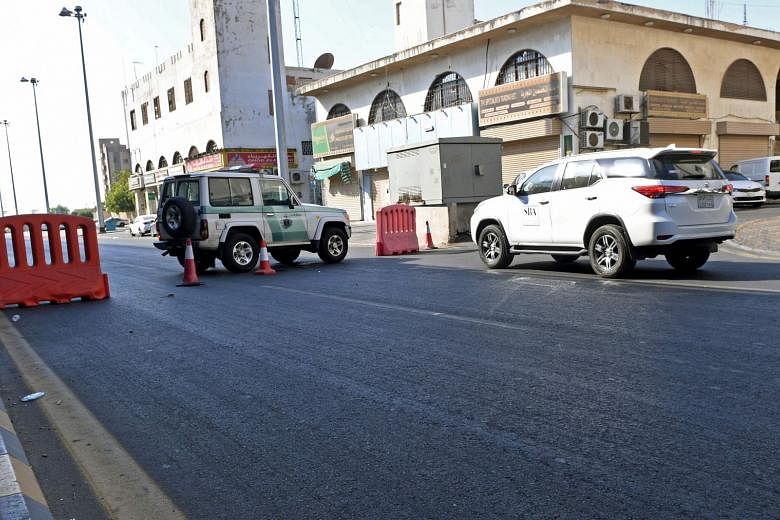BEIRUT (AFP) - The Islamic State in Iraq and Syria (ISIS) group claimed responsibility on Thursday (Nov 12) for a bomb blast that struck a World War I commemoration at a non-Muslim cemetery in Saudi Arabia and wounded two people.
A statement by the extremist group on its Telegram channel said ISIS fighters had "planted an explosive device in... the cemetery in the city of Jeddah yesterday (Wednesday)", where European diplomats were gathered.
It added that the attack, which wounded at least two people at the gathering attended by foreign diplomats, was carried out "in support" of the Prophet Muhammad.
Wednesday's bombing came less than a month after a guard at the French consulate in Jeddah was wounded by a knife-wielding Saudi, amid Muslim fury over satirical cartoons of the Prophet Muhammad.
French President Emmanuel Macron has sought to assuage Muslim anger over the cartoons printed by the satirical magazine Charlie Hebdo.
Diplomats from France, Greece, Italy, Britain and the United States had been in attendance at the Armistice Day commemoration ceremony in the Red Sea port city of Jeddah, their embassies said in a joint statement.
They condemned the attack as "cowardly".
A Greek policeman residing in Saudi Arabia was wounded, a Greek diplomatic source said, and a British citizen was also believed to have been hurt in the bombing.
A Saudi policeman suffered minor injuries, state-owned Al-Ekhbariya television added, citing the governor of Mecca region, where Jeddah is located.
Macron has vigorously defended the right to publish cartoons viewed as offensive by some, including caricatures of the Prophet Muhammad.
The Charlie Hebdo cartoons were shown by French history teacher Samuel Paty to pupils in a class on free speech, leading to his beheading outside Paris on Oct 16 following an online campaign by parents angry over his choice of lesson material.
Macron's stance angered many Muslims, prompting protests in several countries at which portraits of France's president were burnt, and a campaign to boycott French products.
Regional heavyweight Saudi Arabia - home to Islam's holiest sites - has criticised the cartoons, saying it rejected "any attempt to link Islam and terrorism" but stopped short of condemning the French leadership.

